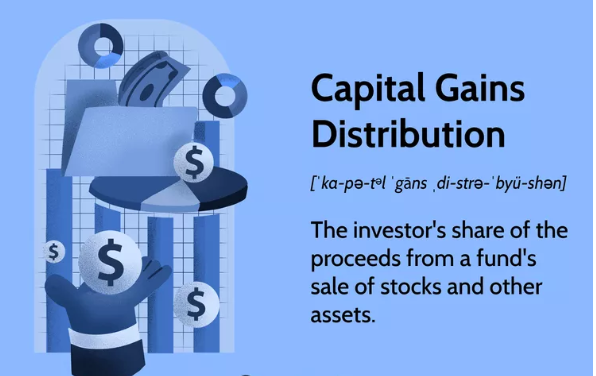Understanding Capital Gain Distributions from Mutual Funds

Written by: Paolo LaPietra, CFP®
Just as I was getting used to writing ‘2023’, next week is November and we are already beginning our year-end planning conversations. There's a handful of topics that fall under this umbrella, but this blog will specifically cater to investors with mutual funds in their taxable portfolios. It's worth highlighting 'taxable' because while retirement accounts like IRAs or 401(k)s can also hold mutual funds, they don't present tax ramifications unless you withdraw the funds. At the heart of this discussion lies a crucial financial impact every mutual fund investor should understand: capital gain distributions. With their tax implications and lack of transparency, these distributions can unexpectedly complicate your annual tax planning.
What we will cover:
- What are Capital Gain Distributions
- Why are they Relevant at Year’s End
- Why Bouchey Financial Group Prefers ETFs
What Are Capital Gain Distributions?
At its core, a capital gain is the profit earned when a capital asset, like a stock or bond, sells at a price surpassing its original cost. Throughout the year, as mutual funds engage in asset trading, they accrue both capital gains and losses. In accordance with IRS guidelines, mutual funds are mandated to distribute these net capital gains annually to their shareholders. These distributed gains are known as capital gain distributions.

Why Are They Relevant at Year's End?
Their significance in year-end planning is due to the fact that these distributions are typically rolled out in December. To give an example, imagine an investor diligently managing their finances all year, minimizing capital gains, or even employing tax-loss harvesting strategies to optimize their tax implications. Then, the capital gain distribution from the mutual fund potentially nullifies all that planning and effort in one fell swoop.
Why We Prefer Exchange Traded Funds (ETFs) at Bouchey Financial Group:
At Bouchey Financial Group, we've recognized the challenges posed by mutual funds' capital gain distributions. As a result, we mainly utilize Exchange Traded Funds (ETFs) for the following reasons:
- No Capital Gain Distributions: One of the primary reasons we gravitate towards ETFs is their structure, which generally avoids the distribution of capital gains. This unique feature stems from the "in-kind" redemption process utilized by ETFs, which typically doesn't trigger a taxable event. Hence, ETFs provide a more tax-efficient vehicle for our clients.
- Lower Expense Ratios: Cost matters in investing. Over time, higher fees can eat into your investment returns. On average, ETFs have lower expense ratios compared to mutual funds. This cost-efficiency, combined with their tax advantages, makes them an attractive investment vehicle.
- Flexibility and Transparency: ETFs are traded on stock exchanges, which means they can be bought or sold throughout the trading day at market prices. This flexibility is absent in traditional mutual funds, which only transact once a day after market close. Additionally, most ETFs regularly update their holdings, providing a level of transparency that's often unparalleled in the mutual fund realm.
In Conclusion:
While mutual funds have been the traditional choice for many investors, it's essential to understand the implications of their year-end capital gain distributions. At Bouchey Financial Group, our emphasis on Exchange Traded Funds is rooted in our commitment to providing efficient, transparent, and cost-effective investment solutions. As the year winds down, it's an excellent time for investors to reflect on their portfolios, consider the impact of capital gain distributions, and explore the many benefits ETFs offer. Remember, in the world of investing, knowledge is power – and understanding the nuances of your investment vehicles is paramount. If you need professional financial guidance, please contact our office.
Bouchey Financial Group has offices in Saratoga Springs and Historic Downtown Troy, NY as well as Boston, MA and Jupiter, FL.